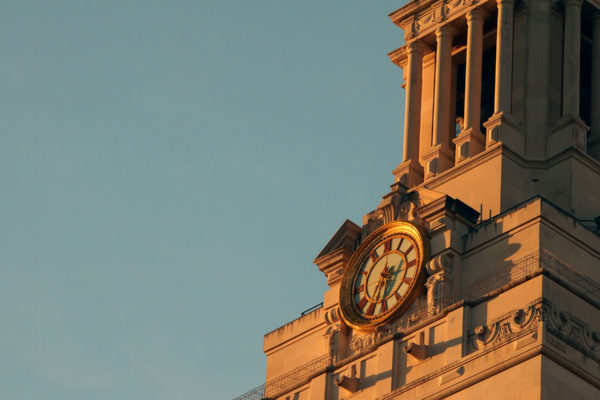As the new president of The University of Texas at Austin, I know that our great institution can live up to its highest ideals only by creating a space where open discourse, discovery and debate can flourish.
I also know that during these challenging and divisive times, the notion of “free speech” has become somewhat controversial and politicized. This is a mistake. The freedom to speak and debate is not only outlined in the First Amendment of the Constitution — it is at the heart of the scientific method and all of the scholarship, creative work and research that defines a world-class university.
Free speech is perhaps the greatest right we have as Americans. And now is the perfect time to take a hard look at how colleges and universities across Texas and the country can work together to reinforce our commitment to free speech among students, faculty members, staffers, administrators and alumni. Difficult and deeply uncomfortable conversations are sometimes necessary for us to make progress.
Longhorn Nation and our great state must remember that supporting people’s freedom to speak and express is not an endorsement of the content of their speech or what they say. It does not endorse its truth, its value or its morality. It does, however, stand on the premise that the only way to figure out what is true, valuable and morally right is through thought and discussion. Freedom of speech is the path, not the problem. And it is vital that our institutions of higher learning understand that and make it known to all those whom we serve. It is only through discourse that we can truly move forward and make breakthroughs.
This understanding starts by recognizing that, to a large degree, the right of free speech is a uniting issue, not a dividing issue. Faculty members of all stripes — across disciplines and specialties in public and private universities across our state — want the freedom to teach their students and present their academic discoveries transparently. This, too, is true of the students who populate our great Texas colleges and universities. Whether it be the presence of a speaker on campus or the reading of a particular text, there will be times when our community members disagree on whether something is appropriate.
This happened at UT during the summer, when I listened closely to the concerns on both sides of the debate surrounding our alma mater “The Eyes of Texas” and ultimately decided that we would continue performing and embracing our song while teaching its history. This happens when we bring together opposing viewpoints on key issues, like hosting both Alex Epstein, the author of “The Moral Case for Fossil Fuels,” and Richard Heinberg, the author of “Afterburn: Society Beyond Fossil Fuels” for UT events in recent years. And it happens every time our community shows support for the candidates and causes that are on the ballot in our elections.
I believe the goal of a public research university, as an educational institution, is to open the minds of our students, expose them to different perspectives and beliefs, and prepare them to lead extraordinary lives after graduation. That doesn’t happen in an echo chamber. That doesn’t happen when everyone agrees. It happens when beliefs and preconceptions are tested. That’s how we teach and that’s how we learn.
As Texans, we must remember to not let our disagreements limit the scope of the knowledge and experiences we provide on a college campus. The fundamental commitment to open expression is one of our core values and must always be treated as such if we are to be true to our mission.
Without the freedom to express new ideas, Martin Luther King Jr. never would have shared his dream in front of the Lincoln Memorial to help create a more just and equitable America. Without the freedom to challenge important ideas, scientists would not be working today to find harmony between Albert Einstein’s theory of general relativity and quantum mechanics to more accurately explain our universe.
We need to agree to disagree on occasion if we are to make progress in every area of society — especially on our Texas campuses.
Jay Hartzell is the president of The University of Texas at Austin.
A version of this op-ed appeared in the Dallas Morning News.




